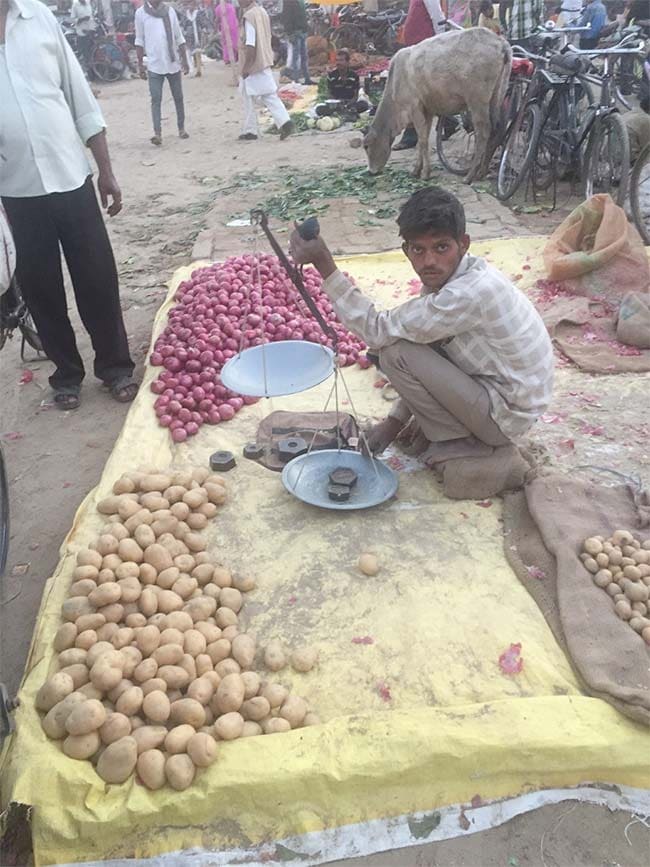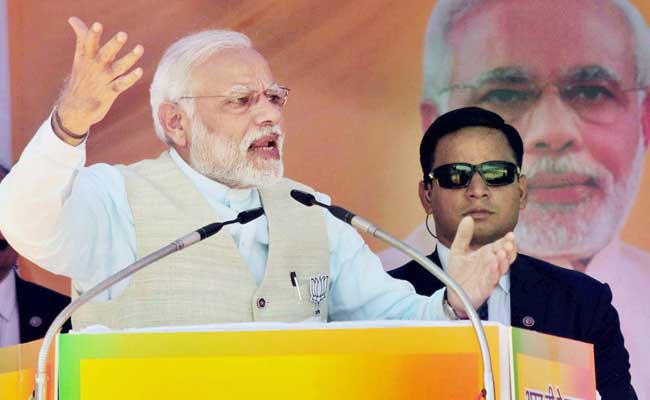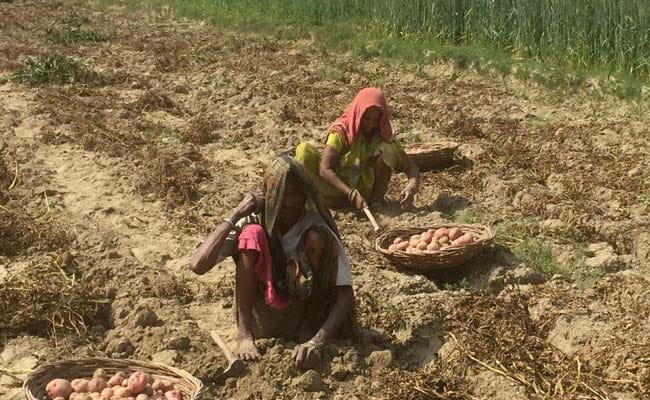Farmers harvesting their bumper potato crop right now - bumper on account of a worthy monsoon after many years - are very worried as prices at mandis or wholesale markets are very low - and there are no takers. Sharing some concern, though for entirely different reasons, it seems, is the BJP, with Prime Minister Narendra Modi suddenly declaring last week in Kannauj that potatoes (along with onions) would be entitled to a guaranteed minimum support price, which means farmers won't be left at the mercy of the mandis. And with potato harvesting still underway, the PM also highlighted that the government had allowed 100% foreign direct investment in food products' industries, a key step in helping farmers to live comfortably in the future.
Perhaps this was motivated by the feedback for the BJP from the first phase of polling (February 11) in Western UP, one of India's largest potato-growing regions, suggesting that the party has done far worse there than they expected and that farmers are unhappy with the government. In fact, farmers in the region said they had expected more from the Prime Minister in his December 31 speech when his demonetization drive ended: they were hoping for big waivers on loans or interest after being hit by the abrupt notes ban.

Bees ka chaar (20 rupees for 4 kg) in Lalganj, Uttar Pradesh
Not that the BJP realistically expected to sweep UP after the SP - Congress alliance. Home Minster Rajnath Singh, high on the party's list of star campaigners and a rumoured contender for Chief Minister, told NDTV that the alliance has forced a closer contest. But he also feels that as voting entered the third phase, the BJP was doing much better. He expects the BJP to get an absolute majority. Give that in a house of 403, that means getting 202 seats, this is a major scale down from the 337 segments won in 2014.
It is however clear that the BJP has picked up traction after the first phase of Western UP and alliance supporters agree that the partnership has under-performed or "could have done much better." When you question them closely on what "much better" means, they throw figures of 250, but insist they will land a majority nevertheless.

Prime Minister Narendra Modi addressing a rally in Kannauj last week
As one commentator put it, this is a "hand to hand" fight in every constituency and the winner will be decided not by a wave, but by which side managed their candidates' caste equations better - because caste is still the single most important criterion in UP. Villages are divided into bastis (subsets of neighbourhoods) for Rajputs, Brahmins, Yadavs and Dalits. There also Muslim areas. How the mix plays in each village is important. So far, the traditional equations seem to have held: the upper castes with the BJP, the Muslims and Yadavs with the Alliance, and the Dalits and some Muslims with Mayawati.
Part of the problem for both these parties is the performance of BSP. Mayawati has always had a strong silent Dalit base with Muslims and others adding to her strength. She has consistently polled above 20% in the last four elections; now, in a three-cornered fight, her level of support is critical in deciding where this election is going. Over the last few elections, Mayawati has been losing support among part of her core constituency, the non-Jatavs SC, whom the BJP won over in 2014 (almost 45% of the non-Jatav vote went to BJP according to CSDS) and has continued to woo. Their appointment of Keshav Prasad Maurya as the state president was directed at this vote and it seems to be working.

Women harvesting the potato crop in Zaidpur, UP
The Alliance actually fears that that if Mayawati's support slips, the BJP will gain enormously. Added to this is the impact of vote consolidation and the polarization of the campaign. And with Muslim voters this seems to be happening. It seems that 80% of the Muslim vote would go to the Alliance. With a 20% voter share in UP, this means the Alliance has a starting base of 16%. This cuts both ways, with many Hindus openly admitting that they are only voting for the BJP because it seems all Muslims are voting for the Alliance. And as remarks about Kasab and crematoria add fuel to an increasingly divisive campaign, the electoral impact could be considerable.
The good voter turnout points to high public interest in these elections, and as this election reaches a crescendo in eastern UP over the next 15 days, it is worth remembering that both the Alliance and BJP are hoping for encore performances here. The SP won more than 62% of the seats in 2012 in this region while the BJP had an astonishing 90% in 2014.
Given this and the current rhetoric, the cauldron could well boil over. And keep an eye on the lady with bag - she isn't done until she says so, and she hasn't said so yet. And if no one sweeps here, perhaps the potato will see Ajit Singh as the king-maker.
(Ishwari Bajpai is Senior Advisor at NDTV)
Disclaimer: The opinions expressed within this article are the personal opinions of the author. The facts and opinions appearing in the article do not reflect the views of NDTV and NDTV does not assume any responsibility or liability for the same.


